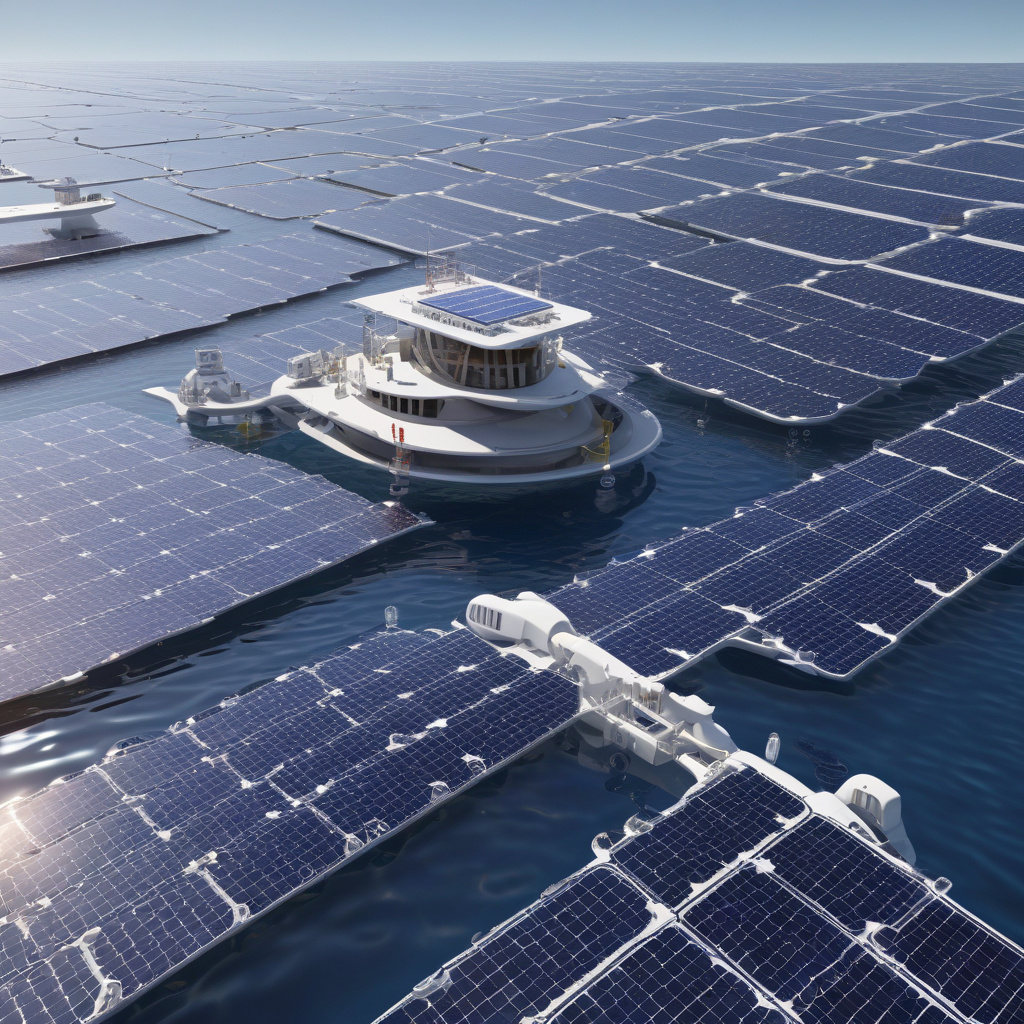4 Billion Tons Yearly: UK Starts Sucking Carbon from Sea with Floating Solar Power
Efforts have begun to suck carbon out of the sea on England’s south coast. A groundbreaking project, led by the UK government, aims to extract 4 billion tons of carbon dioxide from the ocean annually. This initiative combines cutting-edge technology with renewable energy sources, specifically floating solar panels, to combat climate change and reduce carbon emissions significantly.
The concept of extracting carbon from the sea is revolutionary and marks a significant milestone in the fight against global warming. The UK, known for its commitment to sustainability and environmental conservation, is spearheading this innovative approach to carbon capture. By harnessing the power of the sun through floating solar panels, the project not only removes carbon from the sea but also generates clean energy in the process.
Floating solar power, also known as floating photovoltaics, has gained traction in recent years as a viable renewable energy solution. By installing solar panels on bodies of water, such as reservoirs, lakes, and now the sea, countries can maximize energy production while conserving land space. In the case of the UK’s carbon extraction project, floating solar panels play a dual role in capturing carbon dioxide and producing electricity without relying on fossil fuels.
The integration of solar power technology into carbon capture initiatives highlights the importance of innovation in addressing environmental challenges. Traditional carbon capture methods often involve costly infrastructure and complex processes. In contrast, floating solar panels offer a more cost-effective and sustainable approach to reducing carbon emissions. By leveraging the natural power of the sun, countries like the UK can achieve carbon neutrality goals while supporting clean energy transition.
Furthermore, the UK’s endeavor to extract carbon from the sea underscores the potential for collaboration between renewable energy and climate change mitigation efforts. As the world grapples with the impact of greenhouse gas emissions on the environment, innovative solutions that combine technology and sustainability are crucial. Projects like the one on England’s south coast serve as a model for other countries looking to adopt eco-friendly practices and combat climate change effectively.
In conclusion, the UK’s initiative to suck carbon from the sea using floating solar power represents a significant step forward in the quest for a greener, more sustainable future. By embracing cutting-edge technology and renewable energy sources, the project not only addresses carbon emissions but also paves the way for a cleaner and healthier planet. As countries around the world strive to meet their climate goals, innovative approaches like this will play a vital role in shaping a more environmentally conscious society.
carboncapture, solarpower, UKenvironment, climatechange, sustainability











